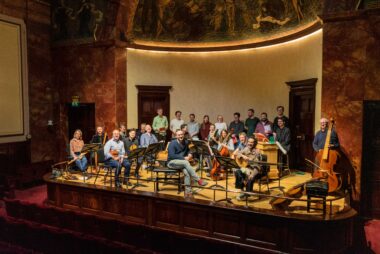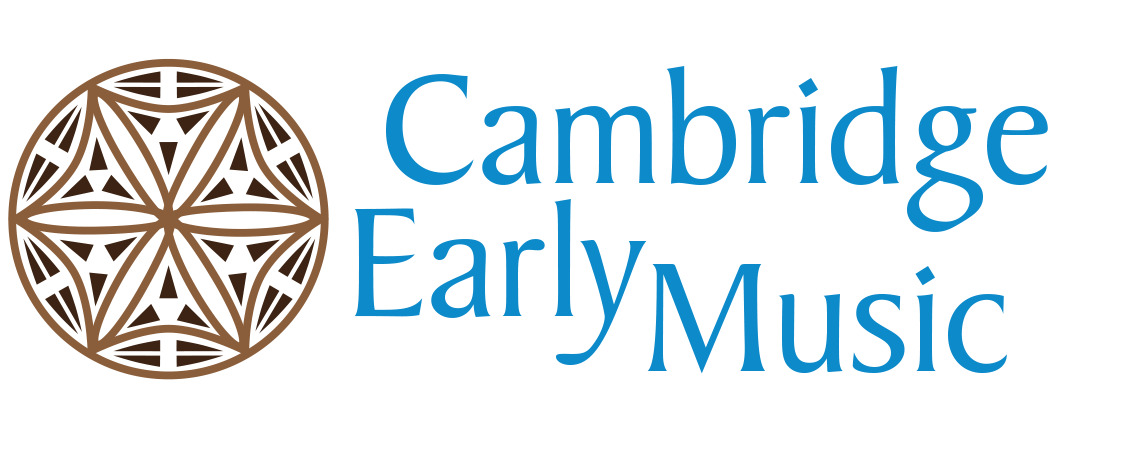The acclaimed ensemble Arcangelo come to Cambridge on 13 December with a festive programme of Schütz, including his Christmas Story. We asked Julian Forbes of Arcangelo to tell us more about this concert.

What makes Schütz’s The Christmas Story (composed around 1660) so compelling to modern audiences?
The Christmas Story is a musical nativity play set largely to the familiar words of the Bible. So with a little help from an English translation, modern audiences can quickly find their place and orientate their appreciation. Once they have, they’ll find that the experience of listening to the work, compared to Bach’s Christmas Oratorio, is easy.
First of all it’s concise and swift. The text is set with economy and in a simple linear way – there’s no ‘time out’ from the narrative as there is in Bach for da capo arias exploring sentiments or morals. And the music and instrumentation are constantly, straightforwardly, characterful and satisfying: the shepherds dance giddily, the angels exult in waves – there’s even a camel-ish lurch to the trombones accompanying the wise men (though Schütz presumably never saw a camel).
How do the other works on this programme complement this central piece?
In the first half of the programme we “foretell” the second half with a sequence of festive motets composed earlier in Schütz’s career. In some cases, you’ll hear first appearances in this music of material which returns in the Christmas Story, notably in the motet “Siehe, es erschien des Engel des Herren”. But the motets offer complete worlds in their own right, none more so than what I don’t blush to call one of the all-time masterpieces, “Auf dem Gebirge”, in which Schütz transmutes what is practically a Biblical footnote into a panorama of time, space and sorrow.
What’s been your personal favourite concert the ensemble has given?
Our 2021 BBC Proms performance of Bach’s St Matthew Passion was one of those rare concerts which took on a status beyond the simply musical. I think it was the first Passion to be performed in the UK to a full audience, without restrictions of any kind, following the end of lockdown. The ambience in the Royal Albert Hall was incredibly special – the audience was exceptionally focused on the performance, and hyper-aware of just what a treat it was, after all those months, to be allowed together to exercise that focus and to play their part in the ritual. Boyd Tonkin captured it perfectly in his review for The Arts Desk.
For pure glee, on the other hand, I must nominate our concert last year with Avi Avital in the almighty Teatro Colon in Buenos Aires. Place absolutely packed to the rafters – thousands! – going volubly nuts for Bach and Vivaldi.
What are you enjoying listening to at the moment (for pleasure rather than work)?
I’ve been a fan since their earliest days of the French group Ensemble Correspondances and their Artistic Director Sebastien Daucé. Of the new generation of French Baroque groups, Ensemble Pygmalion are perhaps better known internationally, but I think that Correspondances and Sebastien are the great modern interpreters of sacred French Baroque Music: suave and prehensile, unctious and menacing. Their latest release is of André Campra’s Requiem – gorgeous, but as with every new release of theirs, it sends me back to re-obsess over their earlier recording of Charpentier’s Litanies de la Vierge, which is for me one of those amazing recordings which everyone knows, in whatever genre, which takes you into a state of grace.
